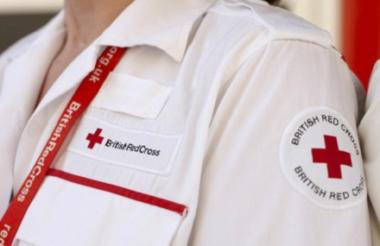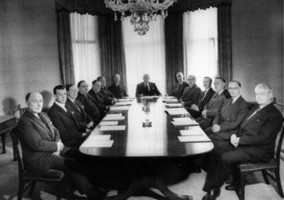Four years ago, following the tragic fire at Grenfell Tower, I reflected that for the Red Cross to truly reach and be trusted by people who need our support during a crisis, we needed to become more diverse.
I was misquoted in a national newspaper as saying the British Red Cross was “too white”. That was an oversimplification of my point. But also, perhaps not?
Tragedies like Grenfell are points of inflection in which the terms of public discourse change. The killing of George Floyd and the rise of the Black Lives Matter movement is another point of inflection. It shouldn't have taken this tragic event to get us talking so openly about race, but terms that have made their way into mainstream lexicon - allyship, anti-racism - can help steer us to be the best version of ourselves, individually and organisationally.
Accusations of 'virtue signaling' and ‘wokedom’ miss the point
As chief executive of a charity, I find criticism of the sector’s efforts to become more inclusive and reflective of our history superficial at best.
Certainly, standalone initiatives like unconscious bias training won't shift the dial on their own. But opening yourself up to the idea that you may be biased, but not realise it, is actually rather profound. And it always makes me laugh when someone sincerely declares to me that they are not unconsciously biased. If we are not open to this notion, how will we ever change ourselves, let alone transform our ability to deliver on our charitable purpose, today and tomorrow?
The value of an inclusive approach
Take the British Red Cross. We marked our 150th anniversary last year, yet this counts for nothing if we do not continuously adapt and change to remain relevant. We need people to trust us, especially those who are in the most vulnerable of situations, so we can serve them at times of crisis. Overlapping factors, from health inequality to financial inequity, to digital exclusion, play into this. Ethnicity is a critical factor, so too is disability, gender and more.
In the time since the Grenfell tragedy, our organisation has become more representative of the working population and the communities we serve. We have adopted a number of practices including the redaction of sensitive personal information from job applications, to mitigate bias; the roll-out of inclusion and diversity training; and supporting the development of a highly engaged and effective BAME staff network. People of colour now account for 13% of our workforce (as of 2020), compared to 8% in 2017.
We are also taking active steps to work with people with lived experience and people of colour to shape our services and our research, and reflect a greater focus on the experiences of people in BAME communities, such as our recent report into loneliness.
We’ve invested our time, talent and resources into working with grassroots organisations and people with lived experience to shape our service and policy development. Our work needs to be relevant to the whole of British society. Just last month, we joined national efforts to try to address the Covid-19 vaccine hesitancy that exists among some Black British and British Asian communities. A tale, in itself, of why British institutions need to be on the front foot on this issue.
Facing up to racism within our workplaces
In the past year, we have been pushed by our people to go further, in particular on the issue of racism.
This is a journey for us. A recent internal staff survey highlights that a minority of people of colour have experienced or witnessed racism while at work. We understand that every incident of racism is different and can range from unconscious bias, micro-aggressions to overt racist behaviour. Every experience of racism is one too many and we are deeply sorry for them.
While I am proud that we have increased the number of people of colour who work at the British Red Cross, we can’t just attract great talent. We have to make sure that people have a positive experience while working for us. We want our people to thrive. And when they do leave, we want them to tell their networks that they believe in us.
Becoming an anti-racist organisation
We have launched a new anti-racism programme, led by a new dedicated anti-racism programme manager and overseen by an executive led steering group, with trustee membership. We will be looking at a whole range of issues from recruitment and career development, empowering our people to speak up and have access to decision makers, and improving the reporting of incidents, to continuing to take action on the issues faced by communities and individuals around the UK.
Our aim is to become an organisation that is actively anti-racist and we are committing to maintaining anti-racism as an organisational priority, even when issues of race are not making headlines.
And we aren’t doing this because we are following a ‘woke’ agenda. We are doing it to live up to our fundamental values: dynamic, courageous, compassionate and inclusive. These values guide us in our work to help people when they are at their most vulnerable. Understanding people and their situations is vitally important if we are to provide effective support. We are needed now, more than ever, and our continued relevance and existence as a charitable organisation depends on it.
Mike Adamson is chief executive of the British Red Cross
Related articles












